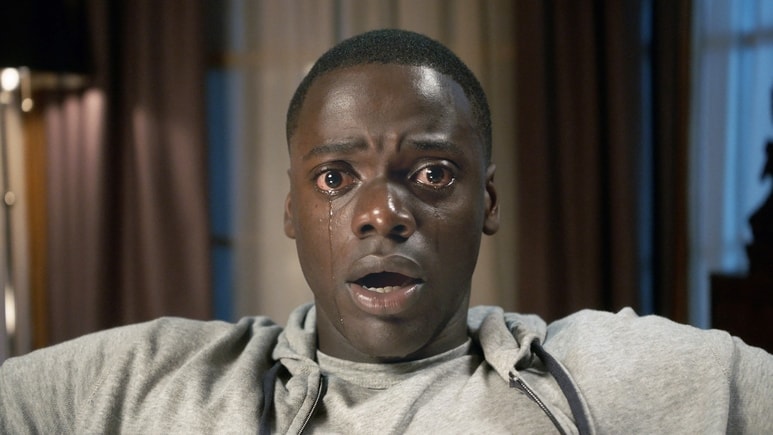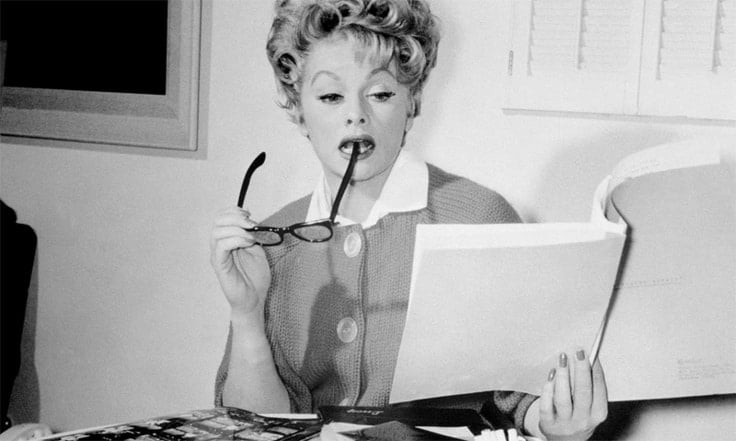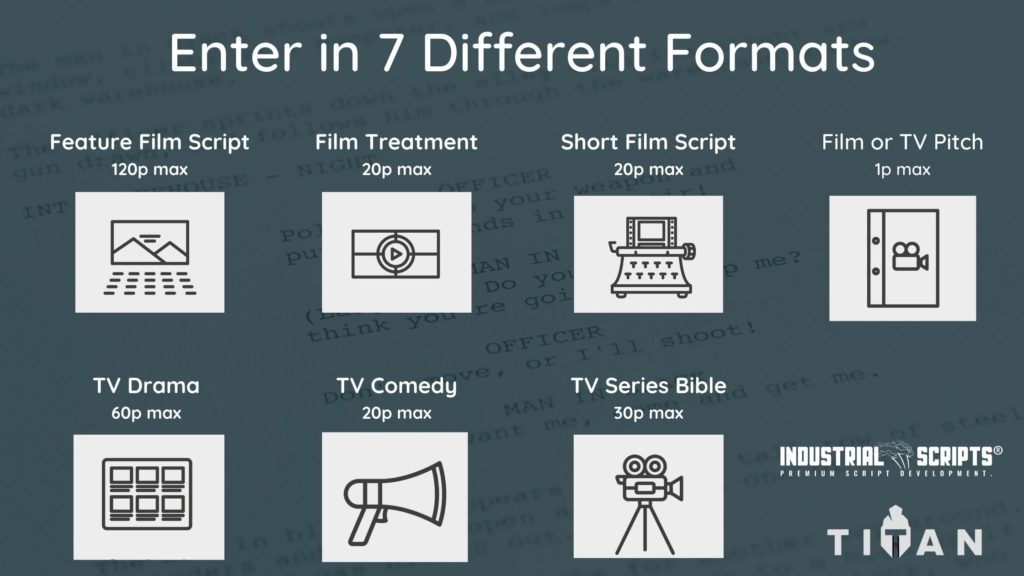What is a Movie Pitch?
So what exactly is a movie pitch? Well, it’s typically a document that seeks to sell your idea, either before or after you’ve written the actual screenplay, to an executive, producer, company or studio. This kind of written pitch is also known as a ‘one pager’.
It’s essentially a summary of:
- Your controlling idea, its plot and themes
- The main characters
- Your intention for the project
- The creative and market vision for the project, including its genre and potential audience.
The movie pitch can take a number of different forms. It might be a short and sweet pitch in no more than a few sentences. Or it might be a verbal pitch, taking the form of a long interview with an executive for example. The elevator pitch meanwhile is designed for the screenwriter to get across their idea in the briefest of windows.
We’ll primarily be focusing on the kind of movie or TV pitch that takes the form of a ‘one pager’. This is primarily how many writers will be asked to format and send out their pitches, so we think it’s the most useful. However, the below tips are also equally applicable to other forms of pitches, albeit with adjustments made for context, delivery and length.
Once you’ve read our tips, you can prepare your movie pitch and submit this 1-pager to Industrial Scripts’ The TITAN Awards, one of the world’s leading screenwriting contests.
The Importance of the Pitch
So why is the movie pitch or TV pitch so important in the arsenal of skills that a screenwriter must have? Well, the pitch is an opportunity for your movie idea or TV show idea to shine through. It’s an essential introduction to you, your writing, your story idea and how you wish to practice and express your craft.
And this is why it’s a document that shouldn’t be taken lightly. Don’t just jot down the essentials of your idea into a word document and think that this is enough. No, a pitch must be a carefully constructed piece of writing.
Moreover, producers, executives or screenplay readers will read hundreds of pitches (sometimes in a very short amount of time). So it’s vital that your pitch is articulate, deliberate and effective. Otherwise, no matter how strong the core of the idea, your pitch won’t leap out, it will be left behind.
Your movie pitch/TV pitch must grab the reader’s attention and leave them in no uncertain terms as to the next steps that need to be made. It needs to be the beginning of a conversation but disguised in the confidence of a statement. In this, it can be a vital step for a screenwriter to make, whether they’re pitching to producers, a production company, a studio or an agent.
A pitch is the first impression and we all know how important a first impression can be. Whilst in real life first impressions can be wrong and quick, in the film and TV industry, there is rarely the time to do anything else than make a crucial first impression of your idea.

The 10 Key Steps to a Movie Pitch
So let’s look at the 10 key steps to a great movie pitch. Whilst this is largely intended to for writing a pitch document, its sentiments can be similarly applied to an elevator pitch, 20 minute pitch, pitch meeting or any similar presentation of your TV or film idea.
We’ll delve into the key points for a great movie pitch first, then highlighting some extras that apply particularly and specifically to a TV pitch.
1. A Captivating Logline
First and foremost, you’ll need to nail your logline. This is the front and centre way in which you convey your movie idea. It will need to be pithy, capture the main narrative engine of your story, demonstrate the protagonist and lure the reader in.
It’s important to note that this isn’t a tagline. It’s not an advertisement, it’s an introduction. It may be brief but it can pack a punch and acts as the headline grabber of your movie pitch.
For more detail on how to craft the perfect logline, check out our loglines guide.
2. Make the Key Moments Stand Out
As you move away from your logline and into your synopsis, you’ll need to give a sense of what the big cinematic moments will be throughout. Think of this like a trailer, which is a compilation and condensing of the story.
As you begin to describe your plot, don’t get lost in the mechanics of the story too much. Keep as much space as you can for the key elements and the key moments that will make your film stand out. These will include:
- Main characters
- Setting and context
- The protagonist’s journey and the changes they undergo
- Where the story starts and where it might go to and end up
- The film’s key conflicts
Moreover, what are the big set-pieces, story beats and story hooks? These are the elements of your idea that are going to need to stand out to the reader. Lean on imagery and create a picture in the reader’s mind. This is a sure way to light their own imagination and get them excited about your movie idea.

3. Keep Your Synopsis Short
Whilst you’re focusing on only conveying the essential, important parts of your story and creating a comprehensive overview of the plot, remember to keep it as brief as you can. This will typically be only a one page document after all.
But conceptually as well you don’t want to bog the reader down in the plot’s every little detail. Make conveying the key story beats your priority. And if this is something you find difficult then this is one of the benefits of writing a movie pitch. It will force you to boil your story down to its core elements, allowing you to see what is most important.
Whilst you shouldn’t lose sight of the details either, as these will make up the script eventually, calcifying what’s most important to your script in terms of getting across the story is vital.
4. Make Your Characters Stand Out and Create a Familiarity
Your pitch is where you’re introducing the producers, executives or screenplay readers to your characters. And in doing so, you want to create a familiarity with them as quickly as possible. Make it so that your characters already feel familiar to the reader midway through the synopsis.
This reflects the way that the audience will experience the film itself. You want to engage the reader in the protagonist‘s character arc as quickly as you can, within the outline of the first act. Then you want to set up as many effective supporting characters as you can too, in addition to the antagonist.
One shortcut to familiarity is to make it clear, whilst still staying succinct, what makes your characters stand out.
- If each character has a sentence or adjective that you can ascribe to, what would it be?
- Remember that the reader is going to be taking in a lot of information in a short amount of time.
- And so shortcuts are a great way to make sure they maintain engagement across the pitch.
This is also achieved by setting out a clear structure to the character arc, visible within the pitch. Demonstrate where your character starts, where they go and where they end up.

5. Explain Your Personal Connection
Where did your movie idea come from? Give a little bit of background to why you want to tell this story.
- Is there anything that connects your story to that of your movie idea?
- Is there anything that gives you specific insight into the themes, characters or narrative?
- Why are you drawn to tell the story in the specific way you have outlined?
- What are your interests as a writer in general?
However, there is no need to go into too much detail or get too personal. In the end, this pitch isn’t about you, it’s about your story. Whilst it is conveying you as a writer, you want your film idea to mostly do this for you. Hide within the pitch, rather than being quite so explicit and overt about presenting yourself.
6. Make the Themes Clear
As well as demonstrating your plot and key characters, you must give a tangible sense of what your script is actually about at its core.
- What are the themes that audiences will take away from this film?
- What is this film about and what in this idea distinguishes it from other films?
You need to do this in as efficient a way as possible. If someone were to ask you what the film is about, what would you say?
This is where the discipline of constructing an elevator pitch comes in handy. There needs to be a top-line summary of what your script is about, away from the plot, away from the characters, away from the genre or stylistic flourishes.
Try and move away from the comfort of writing elegant and lengthy sentences describing your thematic aspirations. Instead, imagine yourself in a pitch meeting. Get to the meat of what you are seeking to say with your film in an as simple and easily digestible a way as possible. Be practical and make the reader immediately comprehend why and how your film is saying something distinctive.
7. Make the Genre and Tone Clear

You’ve established the what and why of your film idea. Now you need to establish the how. This is essential to understanding the feel of your movie as well as its potential marketability.
How is your film going to come across? What is the genre lens through which you wish to tell your story? And moreover, why is this your chosen lens?
Genre is essential to understanding how your film will fit in within the industry landscape. It gives an idea of the potential audience as well as potential production practicalities. This might be essential for producers reading your pitch, for example, helping them understand where they could potentially market your film and how to get the best out of its potential.
It’s crucial to convey tone too, as this is the way in which your film will be received.
- And you needn’t do this by explicitly stating what the tone and genre are within the movie pitch itself.
- Although a sentence highlighting the style you intend for your story is always helpful and clarifying.
- But moreover, you should interrogate as much as possible how you can convey these elements within the synopsis itself.
- What about the way your story is told intrinsically reveals the tone and genre? For example, is it fulfilling certain expected genre expectations?
You need to see your synopsis through this lens. And doing so will further strengthen your concept and its execution.
8. Make Comparable References But Mean Them
References to other movies/TV shows can be very helpful in picturing your movie. But they have to be more than just hollow or stylistic references. They have to actually reveal something about your story and how you want it to be seen.
Saying that your film is X meets Y or like a combination of X and Y, can be a great way of summarising the inherent appeal and potential of your project. However, don’t do this only to make your film sound sexy and exciting, combining two great films to make another potential great film. Two plus two does not equal four in this case.
The best time to make references, particularly if combining them together, is to show how your movie idea is filling a gap. Here, you demonstrate that there is a precedent for the kind of film you’re seeking to tell but that there is nothing exactly quite like it. It’s only in the combination of other examples that you can express the idiosyncrasy of your movie idea.
9. Think About Who is On the Other End of the Pitch

Who is reading your pitch? Whoever it is is likely to be busy and reading many other pitches that day or week. So with this in mind, you need to try as hard as you can to create objectivity and clearly and succinctly convey your ideas to the intended audience without getting too bogged down in expressing every angle of your vision.
This is another time when it can be helpful to envision yourself in a pitch meeting with a specific audience or individual. It’s not particularly helpful to see a blank void at the other end of your movie pitch. Instead, think about how your pitch will be received.
Try and put yourself in the shoes of the person reading your document. This will only leave you wanting to make the pitch easy to read and understand as well as making it as exciting as you can.
Don’t tailor your pitch or try and second guess what the reader will want. But by balancing efficiency and effectiveness with distinction and idiosyncrasy you will make your pitch easy and engaging to read, creating a strong impression overall.
10. Leave The Reader Wanting More
The purpose of a movie pitch above everything else is to leave the reader wanting to read the screenplay you have just pitched, whether you’ve already written it or not. And part of doing this is leaving them wanting more.
You want to leave the reader with a sense of unfinished business. Prepare them for a rich and engaging story and leave them with the sense that they haven’t quite gotten the full bite out of this meal that they potentially could.
However, be careful not to mistake being elusive and tantalising with vague. You must convey your story clearly and distinctly, giving a strong picture of how your film will look, feel and what exactly it will consist of for the duration of its runtime.
Some key ways to achieve this balance of leaving them wanting more and not being too elusive is to ask questions. Again, you want to do this confidently and not give the impression you don’t know the answers to these questions and that you need help.
But by asking questions, you ignite the search for an answer in the reader. A search that can only be answered by the execution, realisation and delivery of your screenplay.
Ready to submit your movie pitch? Submit your 1-pager to Industrial Scripts’ The TITAN Screenwriting Contest.
And For Writing a TV Pitch…
Many of the same rules apply to writing a TV pitch as they do a movie pitch. However, there are some key differences and important elements to consider.
11. Make Clear What the Engine of Your Series Will Be
Differing from movies, TV series need a justification for their form. They need a solid reason for unfolding over a longer period of time, something inherent in the concept. And you need to make what this is clear in your pitch.
- What is the question at the heart of your series which will never quite be answered (until the conclusion) and consequently drive the series?
- What is the push and pull of the series, the thing that the characters want and will continually struggle to get?
The reader needs to get a sense of what will make this series run and run. Even if it’s a limited series pitch, the idea needs to feel that it has depth and scope. How much potential is there in the story world? And what will this story world center around throughout the series?
A TV series needs to have a drive, something to continually push it forward. This is the engine, the dramatic question at the heart of the concept. For example…
- In Breaking Bad, Walter White’s unquenchable quest for power (initially masquerading as a quest for money) drives the series.
- In Succession, the Roy children continually seek their father’s approval, in one way or another. It’s something they’ll never get, such is Logan Roy’s character and so, therefore, the series could potentially go on forever.

12. Demonstrate How the Characters Can and Will Carry the Series
Similarly, in your TV pitch, you need to demonstrate how the characters can and will carry the series. Show that your characters have a depth and three-dimensionality that only a series can explore. There must be visible layers to potentially unwrap.
- What are the characters’ motivations, aims, flaws?
- And is the quest to potentially resolve these enough to carry a series?
- How will the character arc develop and change throughout the series? Is there potential for a mighty rise and fall?
- Is there reward in seeing how the character deals with peaks and troughs? How strong or weak is the character?
This primarily applies to the protagonist. But it can be stretched out to the supporting characters too, particularly in relation to their dynamic with the protagonist.
For example, in The Sopranos, it’s clear from the outset that the dynamic between the different family members in relation to Tony has a lot of potential to explore.
- Carmella is the mob boss wife struggling to deal with her relation to Tony’s work, as well as struggling with Tony’s explosive personality, infidelities and lifestyle.
- Meadow, Tony’s daughter, is both the apple of Tony’s eye but also doesn’t shy away from questioning the truth of his work.
- Anthony, Tony’s son, irks Tony both in the way that he seems to mirror his younger self but in the way he is errant and unfocused.

These dynamics reach peaks and troughs throughout the series. But they’re always there rumbling on in the background as supporting narratives. And they of course compliment the primary series character arc, focused around Tony’s never-ending struggle for mental contentment and his attempt to control the crime family he’s in charge of.
13. Convey the Depth of the Story World
Whilst the setting and story world is important in movies, it’s much more crucial to a TV series concept. It’s another element of the idea that will convey how much depth and reach the series could have.
- How much is there for a potential series to mine in the world?
- How three-dimensional and fleshed out is the world?
- And is this enough to drive many series, or enough to stand at the forefront of a limited series?
For example, in a limited series (also known as mini-series), the context and story world might be so rich that it serves as one of the series’ main themes. And you’ll notice that a lot of limited series are based on true stories for this reason.
- Take Band of Brothers, The People v. O.J. Simpson or John Adams for example.
- These are all series that take have the historical context at the forefront of the series’ themes. They have to, such is the weight of this context.
- So in your TV pitch, make this clear. Justify and argue for why your context is important and what it has to say about universal, timeless themes.
For continuing series, take Game of Thrones as the perfect example…
- The richness and scope of the story world is such that not only was there enough for eight seasons, with a very large ensemble of characters, but there is enough for spinoffs, fan theories and endless lore based around just the world.
So in your TV pitch, no matter how large the scope of your story world, lean into its richness as much as possible. Demonstrate why it is unique and distinctive and give a hint of how much there is to explore.

14. What Will Drive Potential Future Series?
You don’t have to go into great detail at this point or in a short pitch, but you need to convey the ability of your story to carry future series. This is a key part of how to sell your series to those within the industry – conveying how much there is a vision for the series beyond its first.
It goes without saying that industry investment in your idea is more likely if you demonstrate there will be a greater return on their investment. And multiple series is what a lot of studios, production companies or producers will be looking for as there are longer term gains to be had.
Don’t do this section by halves, however, no matter how brief it may be. You might only be writing a sentence or two about the potential for series 2 or 3. But it’s important to do the work outside these two sentences, making sure there is a weight there to be filtered through.
- You don’t want to give some vague sense of how the series could develop, based around some hazy idea of the plot line.
- Instead, you want to succinctly sum up how the series’ main tenets will develop from series to series.
How will the stakes escalate? How will the protagonist‘s journey intensify?
Break down your series development into concrete steps and show why you will need more than one series to truly, fully explore the depth of your characters, world and themes.
Movie Pitch and TV Pitch Examples
So what does a movie pitch and TV pitch look like? Well, there’s no need to be strictly prescriptive here. But your pitch should be broadly made up of the following simple steps.
Movie Pitch Example
Title:
Author:
Then if you have the space…
Themes/Writer’s Statement:
The themes/writer’s statement section will be where you might include how you came to write this idea, why you want to tell it, your aspirations for the project and a little about its intended tone, style and audience. If you’ve managed to keep your synopsis short enough, you’ll have this luxury.
TV Pitch Example
The TV pitch will follow much the same formula, with a few differences.
Title:
Author:
Series Outline/Future Series:
In the series outline/future series section, you will outline the overall vision for the series and how it might develop after the first season. This is where you might highlight the series engine and the themes or intention of the series overall. Again, this is a luxury that you can afford yourself by achieving a succinct synopsis.
Ready to submit your film or TV pitch? Enter The TITAN Awards now!

In Summary
A movie pitch is a document that seeks to sell your idea, either before or after you’ve written the actual screenplay, to an executive, producer, company or studio. This kind of written pitch is also known as a ‘one pager’.
1. Create a captivating logline
2. Make the key moments stand out within the synopsis
3. Keep the synopsis short and succinct
4. Make your characters stand out and create a familiarity with them
5. Explain your personal connection to the idea or material
6. Make the themes clear
7. Make the genre and tone clear
8. Make comparable references but only if they really demonstrate your idea’s distinction
9. Think about the person on the other end of the pitch
10. Leave the reader wanting more
A movie pitch and a TV pitch share a lot of the same structure and need to include the same elements. However, there are a few extra elements that a TV pitch needs to include:
1. You need to give a sense of what the series engine will be – what will carry the plot over multiple episodes or seasons?
2. Convey the depth and reach of the story world.
3. Demonstrate how the characters and their complexity can and will carry the story engagingly through a whole or multiple seasons.
– What did you think of this article? Share It, Like It, give it a rating, and let us know your thoughts in the comments box further down…
– Struggling with a script or book? Story analysis is what we do, all day, every day… check out our range of script coverage services for writers & filmmakers.
Get *ALL* our FREE Resources
Tackle the trickiest areas of screenwriting with our exclusive eBooks. Get all our FREE resources when you join 60,000 filmmakers on our mailing list!


